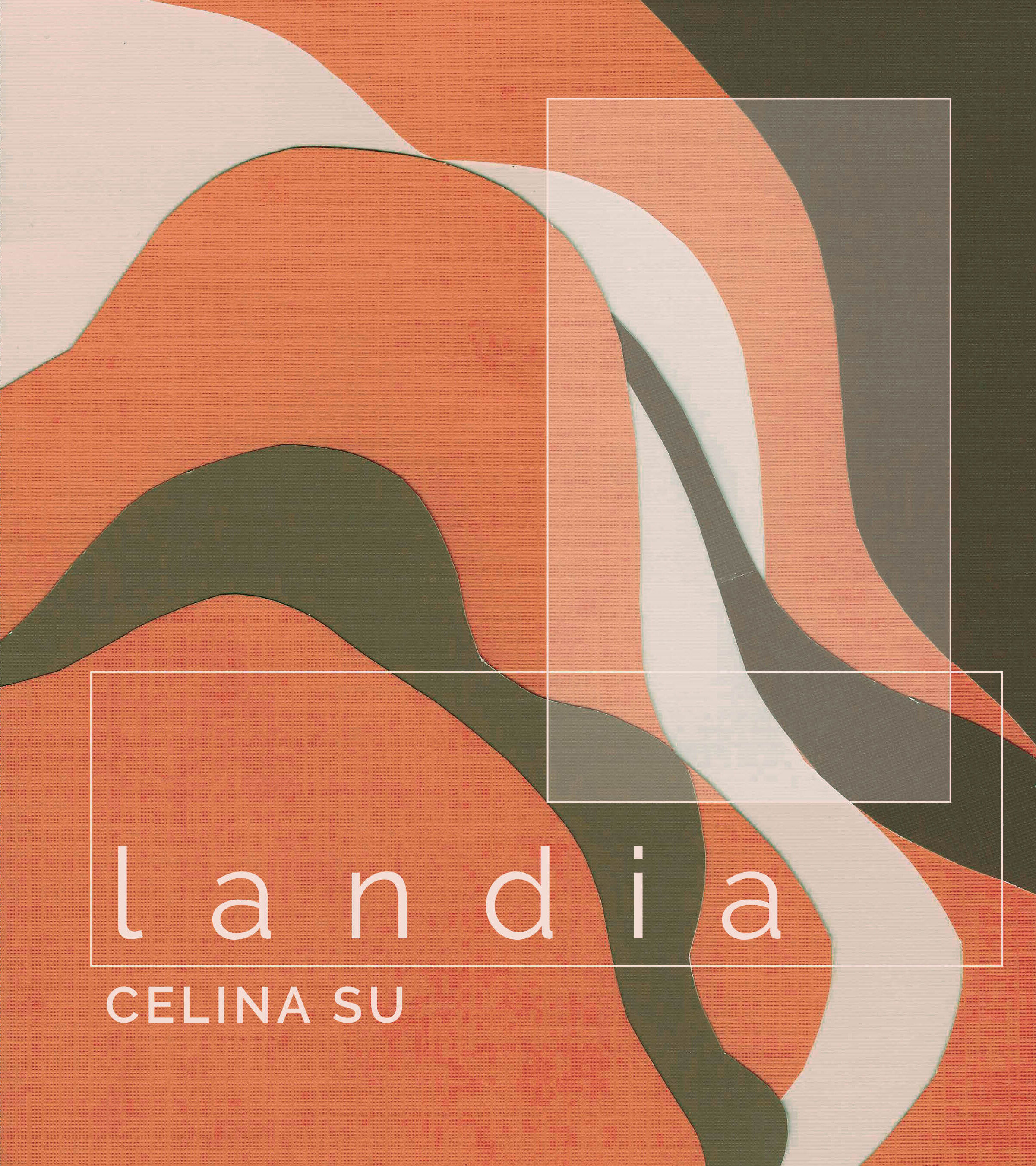 Image 1 of
Image 1 of


Landia
Landia
Celina Su
$16 • 2018 • 112 pp.
ISBN: 978-0-9988439-1-9
Landia
Celina Su
$16 • 2018 • 112 pp.
ISBN: 978-0-9988439-1-9
Landia
Celina Su
$16 • 2018 • 112 pp.
ISBN: 978-0-9988439-1-9
Landia excavates literal and figurative borderlands—redrawn boundaries, architectural palimpsests, underground transport systems—to reckon with the historical and cultural forces that shape our cities and our intimate lives. The book serves as a meditation on imagined and real and hoped-for migrations—of course, Su’s own history permeates, but these poems also draw upon more than a decade of fieldwork, collaborative projects, and long-term relationships with specific immigrant communities and social justice organizations in southeast Asia, Latin America, and throughout the United States. Echoing tensions in social research, Landia is also a reflexive project, questioning documentation as intervention. “A map is not the territory, / but it becomes so over time.” Fueled by fragmentation, the poems act as plaintive pleas to elude and resist the violent institutions that govern us, to trace the contours of new imaginaries and border crossings.
Praise for Landia
Celina Su’s Landia is worldly in the best sense: it is truly about the world. A capacious and much needed response to America’s rising xenophobia, Landia makes another argument as well: that we are all now displaced, uprooted by changing national borders, travel, migration, real estate markets and time itself. True to its title, this most sophisticated poetry about our networked society is a set of maps of our shifting and vanishing neighborhoods, tastes and citizenships. “I cannot differentiate the homage from the lament,” Su writes. Landia is both. You will finish it all the wiser.
—Alissa Quart, author of Monetized
A consummate wordsmith, Celina Su’s Landia is a searingly fun collection of imagery and meter. It proves that mapping is as subjective as memory and language, and that the Chinatown movie theater is the center of the universe—until it isn’t.
—Paul Beatty, author of The Sellout
In her impressive debut collection, Celina Su extends the possibilities of the poetic, bringing as much careful attention (and firsthand experience) to the concrete details of what she calls “prosaic subjection” as she does to the syntax and moods of poetic language. In this particular political moment, the poems in Landia feel especially urgent. “We lie between the lines, the fine print of / our social contracts”: These poems show how each of us—citizen, migrant, refugee, slave—are subjects of language (the imperfect, the conditional, the subjunctive, the imperative) even as our bodies are subjected to the state. Landia brings together the freedom of the poetic imagination and the realities of state and corporate power, forcing us to re-think the borders of the literary and of the political. It is the work of poetry, too, these poems brilliantly demonstrate, to document the undocumented.
—Dorothy Wang, author of Thinking Its Presence: Form, Race, and Subjectivity in Contemporary Asian American Poetry
In the dream-real spaces of “succulent mines,” words travel, dart, bleed, and hide like refugees, like aid workers, like artists, like animals, like exiles, like warriors. The unsettled unsettles everywhere. And yet is seen, known, made viscerally apparent in Celina Su’s astonishing poems. Su’s rage is so raw that it pierces your heart, but so beautifully rendered that each fragment is somehow spliced to another’s.
—Cindi Katz, author of Growing Up Global: Economic Restructuring and Children’s Everyday Lives
Celina Su’s anti-imperial glossaries and roving dérives seem to evoke a radically different kind of civic engagement. “The physical sensation called homecoming” is diffused across the content of these investigative, self-implicating poems. Su foregrounds the imperial wages of the journalistic or anecdotal travel poem; the geographic sweep of her writing and its historical excavations justifies the otherwise frequently astonishing poetry as a political means, an intuitive conduction between otherwise disparate facts and places. “Between points A and B” obtains a lyric solidarity, and I thrill to that prospect. — Cam Scott, author of Romans/ Snowmare
Links
Tse Hao Guang reviews for Singapore Unbound
Sahar Romani reviews for Entropy
Celina Su in conversation with Vi Khi Nao for Lithub
Celina Su is Poet of the Week at Brooklyn Poets
New York Times features Celina Su’s “JFK Airport,” selected by Rita Dove
Academy of American Poets’ Poet-A-Day features a selection from “Notes on the Shape of Absence”
An excerpt from Landia in Brooklyn Rail

Celina Su
Celina Su is the author of two chapbooks, Plurality Decree (MIEL Books) and Beyond Relief(with Ariana Reines, Belladonna*), as well as three books on the politics of social policy and civil society. She is the Marilyn J. Gittell Chair in Urban Studies and an Associate Professor of Political Science at the City University of New York. She was born in São Paulo and lives in Brooklyn.
This book has been made possible in part by the Community of Literary Magazines and Presses’ FACE OUT program with support from the Jerome Foundation.